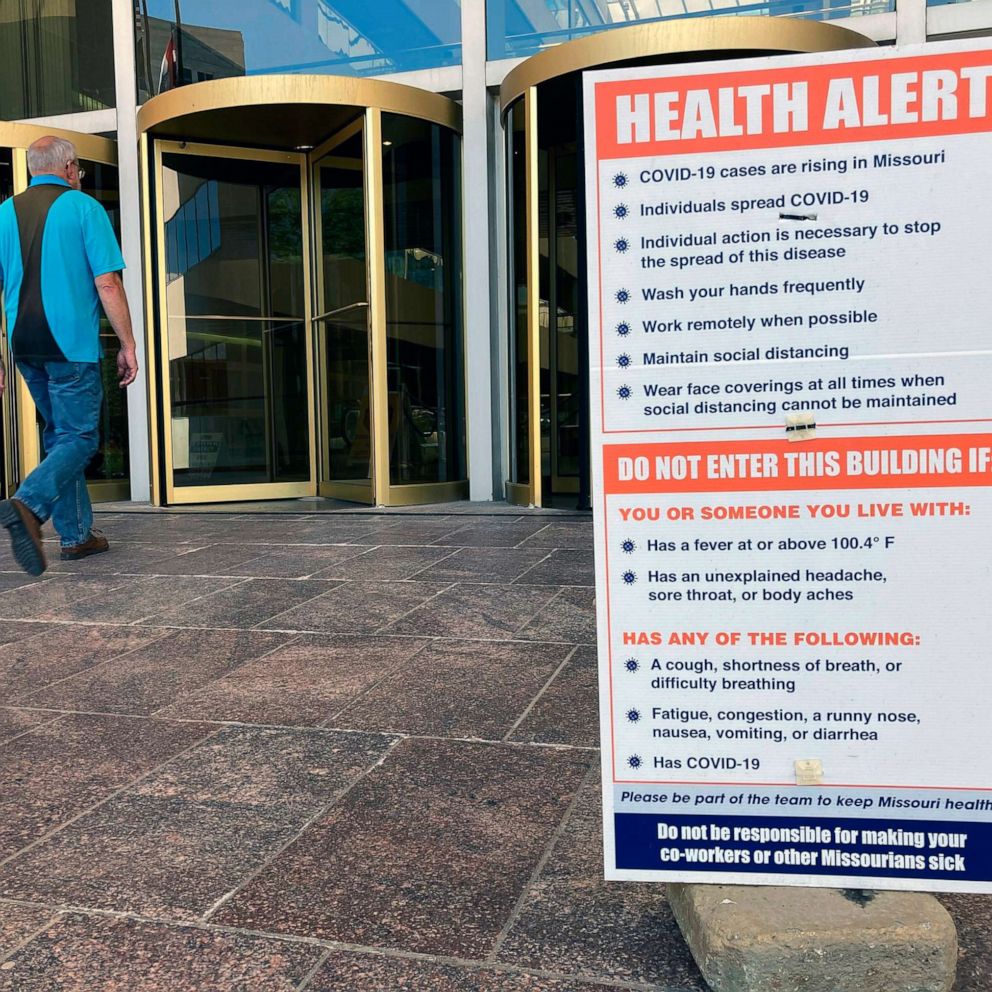COVID-19 complications could strain health system for years
Research contradicts the idea that COVID isn't risky for the young and healthy.
Half of patients hospitalized with COVID-19 developed complications associated with the virus, prompting experts to warn that long-term problems from COVID could strain the health system for years, according to new research out of the United Kingdom.
The study, published Thursday in the Lancet, analyzed hospital records from 73,197 adults in the U.K. who were hospitalized with severe COVID-19. Of those patients, 36,367 developed one or more complications during their hospitalization, including kidney problems, complex respiratory disease (such as bacterial pneumonia), acute respiratory distress syndrome, neurological problems (like seizures or stroke) and heart problems.
Overall, men and patients older than 60 were most likely to have complications, and the incidence of complications rose with age. Still, even young and previously healthy people had relatively high levels of complications. Among 19- to 29-year-olds, 27% developed complications, compared with 37% of 30- to 39-year-olds and 43% of 40- to 49-year-olds.
"This work contradicts current narratives that COVID-19 is only dangerous in people with existing comorbidities and the elderly," Calum Semple, a professor at the University of Liverpool and coauthor of the paper, said in a statement. "Disease severity at admission is a predictor of complications even in younger adults, so prevention of complications requires a primary prevention strategy, meaning vaccination."

The study also pointed to racial disparities in patient outcomes. White, South Asian and East Asian patients had similar rates of complications, but Black patients (58%) were more likely to develop complications than white patients (49%).
Following hospitalization, roughly a third of patients were less able to look after themselves than prior to contracting the virus, an effect that was most pronounced among men, older patients and those who'd been in critical care. Neurological complications had the biggest impact on patients' ability to care for themselves.

"Policy makers and health-care planners should anticipate that large amounts of health and social care resources will be required to support those who survive COVID-19," the study authors noted. "Data on long-term health difficulties posed by COVID-19 will be of great importance, particularly as a large proportion of COVID-19 survivors come from economically active age groups."
The study had a few limitations. Since the research was conducted in the U.K., which has a different population and medical system than the United States does, the results can't necessarily be extrapolated to the U.S. population. The study period (Jan. 17 to Aug. 4, 2020) took place toward the beginning of the pandemic and before vaccines were widely available, meaning the population skewed older. More research needs to be done to determine whether COVID-related health complications are temporary or enduring.
ABC News' Eric Strauss contributed to this report.







